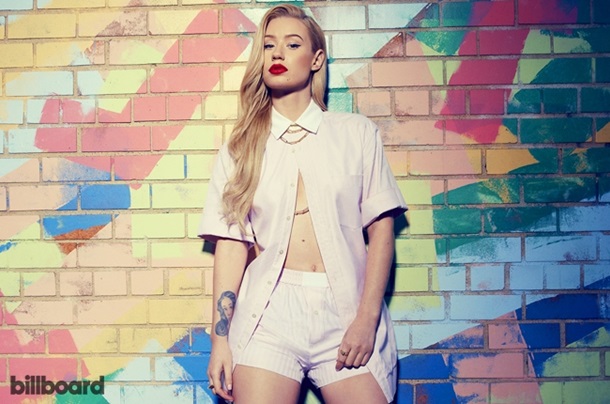“First things first I’m the realest.”
It’s the first line Iggy Azalea raps on ‘Fancy feat. Charli XCX’ – a pop anthem that Rolling Stone included in its 50 Best Songs of 2014. Six words. One loaded sentence that spurred an already simmering debate about authenticity in rap music.
That Azalea spits rhymes in a distinctly southern drawl when she, in fact, hails from rural New South Wales has incited such mounting anger that just this month, The Washington Post claimed her cancelled great Escape tour marked the beginning of the end for Iggy. Citing her inability to sell-out the stadiums for which she’d been booked, and her failure to win a Grammy despite her four nominations as indicative of demise, Soraya Nadia McDonald’s piece also errs heavily on the side that argues Azalea’s music is an offensive appropriation of black culture.
But what is the difference between exploiting a culture and being inspired by it? Where do we draw the line?
Some would say the line was probably well and truly staked out back in 2011 when Azalea rapped:
“When the relay starts I’m a runaway slave master.”
It’s an awkward, if not blatantly offensive, lyric for which Azalea later apologised. And Harlem-based rapper Azealia Banks wasn’t prepared to have any of it. In the wake of Iggy being lauded the first female rapper to appear on XXL Magazine’s Freshman List in 2012, a twitter war between herself and Banks raged.
But last year, in an interview with Hot 97, Banks voiced her frustrations with an industry that she perceives awards whiteness, commandeers black culture when it suits, and “smudges” black artists out of the picture. “…All it says to white kids is ‘You’re great, you’re amazing, you can do whatever you put your mind to’. And it says to black kids, ‘You don’t have s—, you don’t own s—, not even the s— you created for yourself’. And it makes me upset in that way,” she said.
It’s a bullet-proof sentiment I don’t feel equipped to understand fully, though I want to.
For the most part, Iggy Azalea does rap from experience and about what she knows; would her musical persona be so jarring, then, if she were to rap in her natural Australian accent?
In an interview with Noisey, leading linguist David Crystal sheds some light on the accent debate:
“It all depends on where you’re from and how strongly you’re tied to there…It’s all about who you identify with and want to be perceived to identify with…Rapping…comes from the Caribbean way of talking. Anyone who wants to rap has got to respect that. They may respect you, or just laugh in your face.”
Many singers don’t sing in their natural accent. In fact, when some Australian artists do this it can (strangely) come across to some as inauthentic (I personally don’t agree). Given Iggy Azalea grew up on a healthy dose of rap and hip-hop, and moved to Miami in her teens, is it so surprising that she has adopted and honed an American rap style? In an interview with the Sydney Morning Herald, Azalea articulates the affinity she feels with southern rap:
“Southern rap made me realise the country is cool. Southern America reminds me more of being in Mullumbimby than coming to Sydney does. The trees, the roads, the pace, the laid-back life, everyone knowing each other’s name, corner stores being in people’s families for generations, knowing every kid at high school.”
Azalea isn’t welcome in the Aussie hip-hop scene, as The Guardian has gone to great pains to establish, but her reception in the US is a hostile one. Where, then, does her brand of artistry belong?
To me, listening to rap, as with most kinds of music, is a profoundly empathetic experience. Rapping is poetry at its essence and it has the ability to convey a gamut of emotions through the use of rhythm and inflection. When you rap you’re using your voice percussively and you’re taking it to places that speaking and singing can’t go to on their own. Listening to rap is an exchange, and at its core, it’s about story telling.
I’m not a fan of Iggy Azalea’s music, but I’m interested in our ideas about the point at which rap, as a craft, and race relations intersect. Why is it that I’d preference Kendrick Lamar over a white artist who might cite him as an inspiration? I feel there’s something jarring about a person taking on a voice that’s not their own. What do you think? Comment below and tell me what you reckon.
Until next time,
Steph
